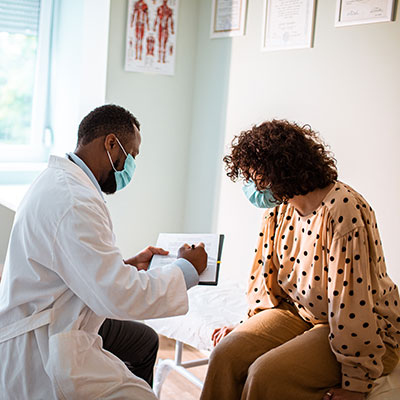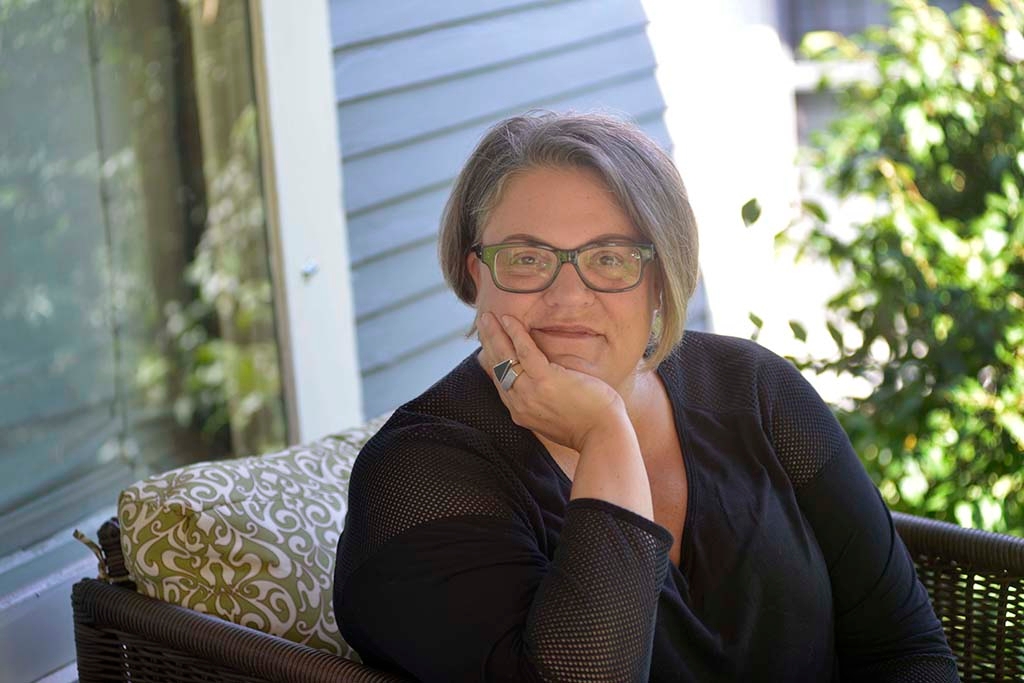
Why you should consider getting a second opinion.

There are a lot of reasons to get a second opinion. Here are a few important ones:
- Your initial examination seemed rushed.
- Your doctor did not listen to what you had to say.
- You did not feel like your doctor examined you thoroughly.
- The doctor seemed to reach a conclusion too quickly.
- Your doctor did not focus on what you want to achieve.
- The initial diagnosis you received did not feel right to you.
Each of these are reason enough to see us for a second opinion, but the most important reason to see us is it will give you a clearer picture as to what you’re dealing with and help ease your concerns about getting treatment.
Experience the difference at Spectrum Health.
We will make sure you get everything you need to understand your situation and confidently move forward with your treatment. When you come in for your second opinion you can expect three important things from us:
- We will listen carefully
- We will examine you thoroughly
- We will do all necessary tests and imaging work needed to make a clear diagnosis.
Once we have done all of this we will explain to you why we arrived at your diagnosis and give you our opinion on the previous diagnosis you received. After we know what’s wrong, we will offer you options on how to proceed. We will take your short- and long-term needs into consideration, as well as your recovery goals, and decide on the best course of action for you. From there we will make a plan for care, bring in all necessary support from our hospital teams, coordinate the scheduling of your services, and stay on top of your progress.
How to find the right doctor for you.
Finding the right doctor is an individual choice. What you want to find is someone with the right experience who you trust. Here is a short list of what to look for, and what to ask:
Do they specialize in your particular kind of injury?
Specialization can make all the difference in getting the right diagnosis and treatment.
Would you prefer a male or female doctor?
Sometimes, feeling relaxed around a doctor comes down to gender. If this is the case make sure to ask if the kind of doctor you would prefer to see is available.
Do they have experience working with LGBTQIA patients?
If you identity as LGBTQIA, having someone familiar with your particular issues can make going to the doctor much easier, and help remove any concerns you may have.
What hospital are they affiliated with and do they have the resources to provide total care?
Hospital affiliation can make all the difference. Ask if the hospital can give referrals and coordinate your care throughout their system.
Do they participate in your insurance plan?
This is a practical matter that can put your mind at ease. Ask if they participate in your plan and if they meet any other requirements, like being in network.
Do you feel comfortable with that doctor?
Your doctor is in an important relationship with you, so make sure you feel comfortable with them, and free to express your needs and concerns.
Questions to ask during your second opinion appointment.
Getting a diagnosis is a relief, but it can also feel like a lot when you’re sitting in the doctor’s office. We want you to ask the questions you need to understand your sports medicine diagnosis, so we have prepared a short list to help you during your appointment.
- Why do you think this is the right diagnosis for me?
- Is my condition common, and have you treated it before?
- Will I be able to get back to doing what I want to do every day?
- What treatment option do you think is best for me?
- Who will be coordinating my care?
- What will recovery look like for me?
- How long will this treatment last?
- How will this treatment impact my life?
- What changes will I need to make to stay healthy?
- Who should I call if I have more questions?
Patient stories

Bringing back the bounce
Ever since her teenage years, Samantha Searl had accepted knee pain as part of life. Not until age 48 did she discover she didn't have to live that way.
‘I thought both my legs were broken’
After overcoming a gruesome injury, Kendra Brocker becomes a top Motocross athlete.

